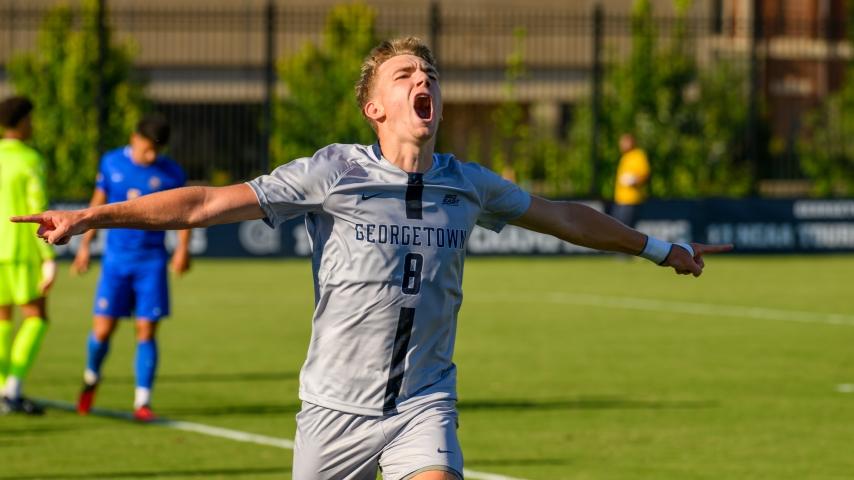Success in college soccer isn’t just about technical ability, speed, or fitness. Leadership and communication skills play an equally important role in a player's ability to stand out, contribute to their team, and attract the attention of college coaches.
1. Why Leadership and Communication Matter in College Soccer
Leadership Goes Beyond Wearing the Captain’s Armband
Many players assume that leadership is only for team captains, but every player can (and should) display leadership qualities. Leadership in soccer means:
- Setting the standard in training and games.
- Encouraging teammates and keeping morale high.
- Taking responsibility on and off the field.
- Maintaining discipline and professionalism in all situations.
A player who consistently demonstrates leadership traits can gain the trust of teammates and coaches, making them more valuable to a college program.
Communication: The Key to Team Success
Soccer is a fast-paced, dynamic game where communication can be the difference between victory and defeat. Effective communication helps in:
- Organizing the team’s defensive shape.
- Providing support and instructions to teammates.
- Avoiding mistakes caused by confusion or lack of awareness.
- Keeping team morale high, especially in difficult moments.
Coaches look for players who can communicate effectively, whether it's providing constructive feedback, calling for the ball, or keeping teammates focused during a tough match.
2. How Leadership and Communication Impact a College Soccer Team
Creating a Winning Mentality
A team with strong leaders is more likely to stay focused, disciplined, and motivated throughout a season. Leadership helps establish a culture of accountability, where every player pushes each other to perform at their best.
Improving On-Field Performance
Teams that communicate well are more organized, structured, and prepared for different game situations. Players who talk and guide their teammates create a more cohesive and effective unit.
Handling Pressure and Adversity
College soccer is competitive, and players will inevitably face challenges—whether it’s losing a starting position, dealing with injuries, or experiencing a losing streak. Strong leadership helps teams and individuals stay mentally tough and bounce back from setbacks.
3. What College Coaches Look for in Leaders and Communicators
College coaches are always looking for players who bring more than just technical ability. Here’s what they pay attention to when evaluating leadership and communication:
Vocal Presence on the Field
- Are you giving clear, concise instructions?
- Do you encourage and support teammates?
- Are you engaged in the game even when you don’t have the ball?
Body Language and Attitude
- Do you remain composed under pressure?
- How do you react to mistakes (yours or others')?
- Are you respectful toward coaches, referees, and teammates?
Ability to Motivate and Inspire Others
- Do you lead by example in training and games?
- Do you hold yourself and others accountable?
- Can you lift your teammates’ spirits when things aren’t going well?
4. How to Develop Leadership and Communication Skills
Not every player is a natural leader, but leadership and communication can be developed over time. Here’s how:
Improve Your Verbal Communication
- Be vocal during training and matches—call for the ball, give instructions, and encourage teammates.
- Speak with confidence and clarity; avoid mumbling or unnecessary yelling.
- Learn to listen—good communication involves understanding teammates' perspectives and responding effectively.
Lead by Example
- Work harder than anyone else on the field.
- Maintain a positive and focused attitude, even in tough moments.
- Show respect and professionalism toward coaches, referees, and opponents.
Take Initiative
- Help new teammates adjust to the team culture.
- Take responsibility for team tasks, such as organizing warm-ups.
- Step up in big moments when the team needs leadership.
Develop Mental Toughness
- Stay calm and composed in high-pressure situations.
- Learn from failures and bounce back stronger.
- Maintain focus, regardless of distractions or setbacks.
5. Examples of Great Leaders in College Soccer
Many successful college and professional soccer players developed strong leadership and communication skills early in their careers. Players like Tyler Adams (who captained the U.S. Men’s National Team at a young age) have shown how leadership can elevate a player's career.
Watching and learning from great leaders can help young athletes understand what it takes to guide a team to success.
6. Final Thoughts
Leadership and communication are two of the most underrated skills in college soccer. While technical ability and athleticism are important, the players who stand out to coaches are the ones who take charge, communicate effectively, and inspire those around them.
If you want to improve your chances of playing at the college level, start focusing on your leadership and communication skills today. Whether it's becoming more vocal, leading by example, or staying composed under pressure, these qualities will set you apart and make you a valuable asset to any college soccer team.
Now, take the next step—start leading and communicating like a college athlete!
.svg)








